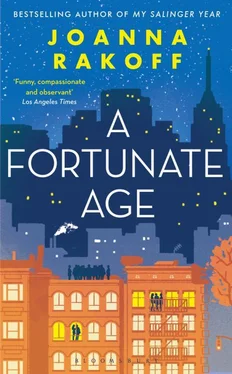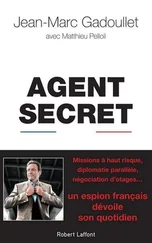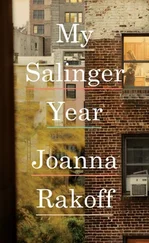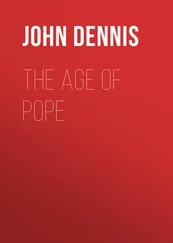But she had a point, and the real truth was that he was afraid to quit, afraid that without actual physical people—people he knew and could touch and whine about in their absence—for whom to write songs, he would cease to write them, as he had after leaving Eastman and before joining up with Curtis. Each time he worked up the nerve to quit, something happened that disallowed him from doing so. First, they booked that show at Mercury Lounge (Marco’s dad knew the owner). So he decided to stay on for that. And now this Reynold Marks gig, which was, really, a huge fucking deal, even though Reynold Marks was, yes, lame . He’d been vaguely cool at one point—a college radio staple—but then there’d been that big single, some shitty ballad, and—bam—the baseball-capped morons at Syracuse and SUNY-Binghamton and wherever had stopped listening to Hootie and the Blowfish or Dave Matthews or whoever long enough to buy a million copies of Reynold Marks’s second album and go all apoplectic when he appeared on Letterman.
The thing about Reynold Marks, though, was that he was a pianist (like Dave) rather than a guitarist (like Curtis), and for this reason alone Dave felt a strange affection for the guy—though he would never admit it to anyone—and wondered if the presence of a pianist, not just a keyboard player, wasn’t what attracted Marks to Anhedonia (if that was what they were going to call themselves), now that it mattered, for the show was almost upon them, and Curtis et al. were going kind of nuts about it. Actually, it was two shows—two sold-out shows—a Thursday and Friday night at the end of the month. Dave had found subs for his shifts at Madame Woo’s and carefully laundered his favorite T-shirts, a faded black relic from the first Pixies tour (“Death to the Pixies”) and a tattered navy thing with the Oberlin seal on it, in cracked white ink, passed down from his father. They sat on his dresser, sending out faint beams of promise in advance of their wearing. He had secured VIP passes for all of his friends, except Beth, who wouldn’t want to come anyway. They were rehearsing nearly all night, every night, and Dave was behind on a huge copying project for some big-deal Juilliard guy. He’d have to work night and day in August to catch up.
Curtis had prepared the set list, of course, without input from anyone else. He’d chosen mostly newer songs, which was sort of stupid, Dave thought, and kind of stressful, as they now had to rush to learn them all. And as soon as they’d mastered one, Curtis decided it sucked and swapped in something newer. The guy was incredibly prolific, churning out a few songs a week, and always thinking the newest stuff was better. And even the new stuff, he couldn’t leave alone. “What if we try it really slow?” he’d say, about a fast, anthem sort of thing that was, Dave thought, meant to be fast. Or “What if we change the key?” Then why did you write it in this key , Dave wanted to ask, but never did, of course. And Curtis, of course, never asked what Dave thought of anything. He seemed to regard Dave as something akin to an animated piece of furniture. “ Why don’t you just talk to him?” Sadie had moaned a few days prior, dropping her head heavily onto her right hand. Tal had left for L.A., his big-deal film, so suddenly Sadie was free for drinks whenever Dave wanted. “You’re killing me.”
“You don’t understand what this guy is like,” Dave told her.
“He seems perfectly nice,” she insisted. “Play him the stuff you’re working on.”
“ Seems nice,” Dave explained, “but has the icy heart of a hired assassin.”
The closer they got to the show, the more quiet and impassive Curtis became, gesturing with his long hands to indicate “louder” or “softer” or “faster” or “slower” instead of speaking the words. He was living in the practice space now, in a pup tent, having given up his apartment (and the unfriendly girl installed in it) and quit his job at a coffee shop in order to devote every waking minute to the band. Dave had started biting his cuticles again, after years on the wagon. He awoke in the early morning, breathless and anxious, with the feeling that he had somehow boarded a train that refused to stop. This was his chance, his shot—things were going, somehow, to change, would change irrevocably, so that his life would be divided into “before” and “after” the show—and yet, somehow he had, he felt, already missed it, already messed it up.
Exactly a week before the show they broke early—they were sniping and snarling at one another, anyway, and fumbling, now, even on songs they knew well—and went to sit at Pedro’s short, cruddy bar. Marco and the others sipped Maker’s Mark while the bass player recounted some long story about a member of Sleater-Kinney, who had been married to some indie rock guy, but they were now divorced and had formed a band together, which was much better than Sleater-Kinney. Quasi , thought Dave, yes, tell me something I don’t know . But he pretended the bass player, whose name also happened to be Dave, was providing him with new and fascinating information and drained his beer. I should go home , he thought, I hate these people .
But he hated even more the thought of being left out of anything, anything , they did, and so he ordered another beer and before he could finish it Curtis slid onto the stool next to him, mumbling “Hey” to Dave and gesturing to the bartender for another round. Several days’ worth of patchy beard covered his pale cheeks and a sharp smell wafted from parts of his long body that Dave didn’t want to think about. There was no bathroom in the practice space—just a grimy shared toilet down the hall—and he was showering, presumably not very often, at Marco’s. “So,” said Dave, already weary of the conversation, already hating whatever was going to come out of his mouth next. He turned into a moron when left alone with Curtis. “So, we sound pretty good, huh.” Curtis nodded.
“Yeah, I guess,” he said. It speaks , thought Dave. “I’m just really stressed out about…” His voice trailed off and he raised his hand, making an incomprehensible gesture, a sort of circular wave.
“I know, I know,” said Dave, shaking his head. “It’s rough. It’s a lot of pressure.”
“Exactly,” Curtis replied, sighing deeply. “I didn’t think it would be like this. I didn’t think it would happen this way. That we’d have something so…” He waved his hands again.
“Big?” Dave offered.
“Yeah! Something so big, so quick. You know?” Dave nodded. He’d not expected this either—no, that was a lie, in a strange way, he had , that’s why he’d stayed on. Though he wasn’t entirely sure what the gig would mean for them. A deal? With a small label? Or a big one? (Didn’t big labels stick to bland pop acts these days? But then, didn’t big labels own all the small labels now anyway? Though Merge was still independent, he supposed, and maybe Kill Rock Stars.) And, if so, how would their lives change? Would they suddenly have money? He knew—having dated the girl from Their Own Devices (she’d be at the Thursday night show)—that a band could become kind of famous without actually making any money. But he also knew that sometimes—who knew why?—particular bands became instantly popular. First, you’d see them written up in the Voice or New York Press , a small blurb, maybe, explaining the group’s merits and urging you to go to their show Wednesday at the Knitting Factory or Arlene Grocery or Luna. Then there’d be a little something in Time Out , with a big photo (five guys against a red wall, disheveled in old cords) and a coolly sycophantic profile, dubbing them as, maybe, “the best band you’ve never heard of” or “Brooklyn’s best-kept secret.” Next, flipping through The New Yorker , you’d see a little sketch of the band (Buddy Holly glasses, vintage Converse, shaggy hair) in the “Goings On About Town” section (Saturday at Mercury Lounge or Northsix), and you’d think, Oh, I heard they were good. Where did I hear that? At the dentist, you’d find a photo in the “Cue” section of New York . And then, before you knew it, there they’d be, on the cover of Time Out , for the annual music issue or whatever, in which they promote five new bands as The Next Big Thing. Days later, the cover of their album would appear in the window of the Virgin Megastore, magnified a hundredfold, in between the latest horrors from Janet Jackson and Celine Dion. Presumably, their single would be getting some serious airplay (Dave didn’t listen to the radio), the corollary video in heavy rotation on MTV, and they would be appearing on Saturday Night Live and Letterman and Conan . And your friends, who saw them months ago at the Knitting Factory, would be saying, “No, they’re really good. I know they’re everywhere, but they’re actually really good.” And sometimes, they were. It could happen , Dave thought, to us. It could . He glanced at the other guys, who were now talking about some girl they knew who was dating Stephen Malkmus. They lived and breathed this stuff. Were they lying awake at night, Schlitz buzz going sour, imagining the moment the Sub Pop A&R guy approached them backstage? Or, what? Dave couldn’t get past that point, the offer, the approach. He didn’t know what would happen after. It was, for him, like sex: when he fantasized about it, he never got past the seduction.
Читать дальше












